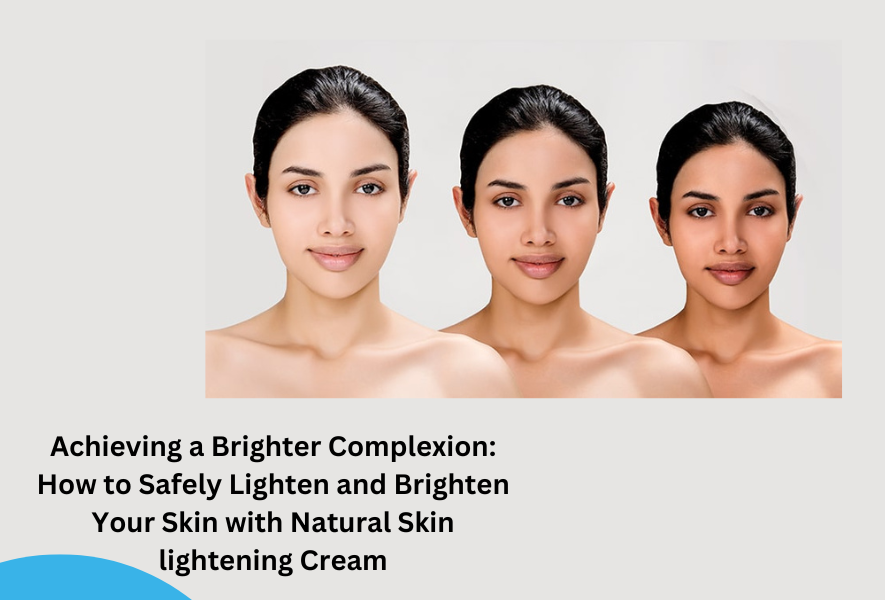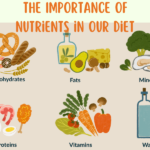The pursuit of beauty has led many down different paths throughout human history. In contemporary times, one of these paths is the usage of Natural skin lightening cream. These products promise to lighten one’s complexion, reducing the appearance of blemishes, dark spots, and uneven skin tone. While the cosmetic appeal of these products is evident, they come bundled with a slew of concerns ranging from health implications to sociocultural issues.
What are Skin Lightening Creams?
At a fundamental level, Natural skin lightening cream are topical applications formulated to reduce the melanin pigment in the skin. This leads to a lighter skin tone. They contain active ingredients like hydroquinone, corticosteroids, and mercury, which inhibit the production of melanin.
The Cosmetics of Lighter Skin
The allure of lighter skin has been embedded in many cultures for centuries. In some societies, a lighter complexion is associated with beauty, wealth, and social status. For others, it’s a way to combat hyper pigmentation, acne scars, or age spots.
The global demand for skin lightening products reflects these desires. The Asia-Pacific region, in particular, has seen a surge in demand. As of 2019, the skin lightening industry was projected to reach a staggering $31.2 billion by 2024.
Health Concerns
Despite their popularity, these creams are not without potential health hazards:
Hydroquinone: Once hailed as a magic skin-lightening ingredient, hydroquinone is now banned in many countries, including the European Union. Prolonged usage can cause a skin condition called ochronosis, which results in bluish-black discoloration.
Mercury: Some skin lightening creams contain mercury, which can lead to mercury poisoning. Symptoms include numbness, high blood pressure, kidney damage, and even neurological issues.
Corticosteroids: Over-the-counter creams containing corticosteroids can thin the skin, leading to visible blood vessels, acne, and poor wound healing. Misuse can also lead to internal issues like high blood sugar and bone damage.
Sociocultural Implications
Beyond health concerns, the desire for lighter skin can be seen as a manifestation of deeper sociocultural issues.
Colonial Mindset: In many post-colonial nations, lighter skin is often synonymous with power, beauty, and privilege, a notion stemming from centuries of colonization by lighter-skinned invaders or colonists.
Media Representation: The media has a substantial influence on beauty standards. Fair-skinned models and celebrities often dominate billboards, television shows, and movies. This saturation can, over time, lead to a skewed perception of beauty, where light skin becomes the “norm” or the “ideal.”
Social Pressure: In cultures with a preference for lighter skin, individuals might experience pressure from family or peers to lighten their complexion for better marriage prospects or social acceptance.
Natural Alternatives
For those looking to address hyperpigmentation or uneven skin tone without resorting to chemical-laden creams, several natural alternatives exist:
Lemon Juice: Its citric acid content can help lighten dark spots. However, it can be drying and is best used in moderation.
Turmeric: A staple in Indian cuisine, turmeric is believed to have skin-lightening properties.
Aloe Vera: Known for its healing properties, aloe vera can help reduce dark spots and blemishes.
Conclusion
While it’s essential to respect individual choices, it’s equally crucial to be informed. If one decides to use skin lightening products, it’s recommended to opt for those without harmful chemicals and to always conduct a patch test first.
Moreover, we must challenge and reflect upon societal beauty standards that emphasize one skin tone over another. True beauty lies in embracing our unique shades and features. The journey towards a world where every complexion is celebrated begins with individual acceptance and understanding.



